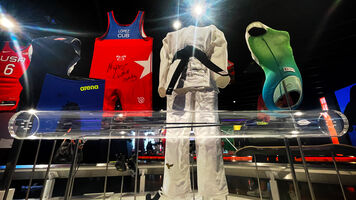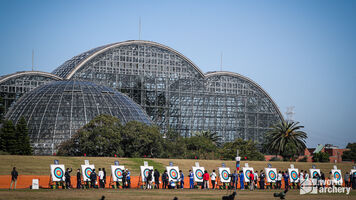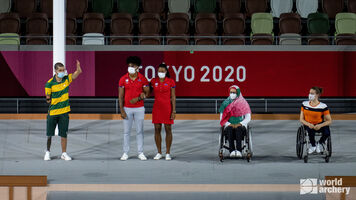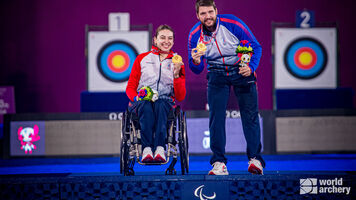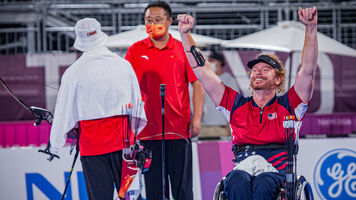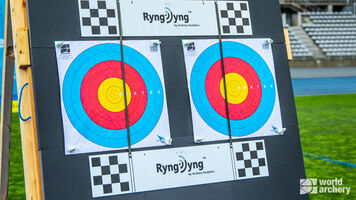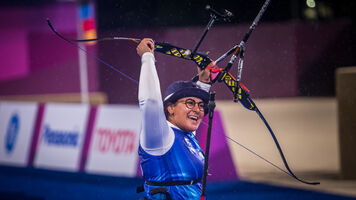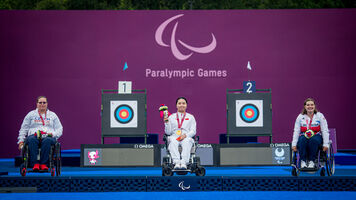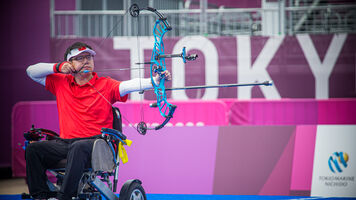Who is most likely to win the Tokyo 2020 Olympic Games?

Due to the COVID-19 pandemic, the Tokyo 2020 Olympic Games have a chance to be the most unpredictable in the event’s history.
For a sport like archery, with a matchplay format that lends itself to an air of volatility, forecasting which archers leave Japan with gold becomes even harder to prognosticate.
We have spent the past four months watching, evaluating and grading the field of recurve archers in contention for the Games to track who stands the best chance of cresting the podium later this month.
India’s Deepika Kumari and Brady Ellison of the United States, the two world number ones in their respective categories, took the top spots in our final power rankings. Both archers have had phenomenal seasons and have as good a chance to win gold as anyone in Tokyo.
A top ranking, however, offers little as far as reassurance is concerned for archers at the Olympics. As Korea’s Kim Woojin learned in 2016, not even a world-record qualification round could prevent an unexpected early exit at the Rio Games.

Predicting which archer will win is subject to considerable uncertainty. There are five medal events for recurve archers this year: men’s and women’s individual, men’s and women’s team and, making its Olympic debut, the mixed team. It is the highest number of medals in the sport since its return to the programme in 1972.
Some things are certain.
We know, for instance, that the individual winners in Tokyo will be different than in Rio. This was almost always going to be the case – as no individual archer has successfully defended their title in the history of the Games, but this year it’s an absolute certainty. Reigning Olympic Champions Chang Hye Jin and Ku Bonchan were both left off the Korean national team, victims of their country’s ferociously high selection process.
Neither will be in Tokyo to defend their title.
Chang and Ku, however, both won in their Olympic debuts, and history tells us a similar scenario will play out in Tokyo. Since the modern archery competition began at the 1972 Olympics, 19 of the available 24 individual gold medals have been won by athletes appearing in their first Olympics.
Chang, for example, was widely considered the third member of the Korean women's team in 2016, arriving in Rio with far less scrutiny than 2012 individual Olympic Champion Ki Bo Bae and then-world-number-one Choi Misun. Just as she emerged from Ki’s shadow to win the world’s top prize in 2016, it’s equally likely that an insurgent archer like An San, making their Olympic debut, claims gold at this summer’s Games.

Veteran archers looking for signs of optimism should turn their attention toward Simon Fairweather, who won gold in his fourth Games at the Sydney Olympics. His victory on home soil is an encouraging data point for host country Japan, whose line-up features a stark combination of experience and promising youth.
Tokyo will be the fifth consecutive Olympics for Takaharu Furukawa, who took the individual silver medal in his third appearance at London 2012. The host country has historically thrived in archery. Competing at home could be the boost Furukawa needs to finally win gold.
The most likely medal winners, however, hail from Korea, which pulled off a historic sweep of the golds in 2016.
While choosing an individual winner might be a challenge, it isn’t as difficult to guess which flag they’ll be flying.
Korea has won every gold medal in the women's team event since 1988 Seoul, and former world number one Kang Chae Young will lead the effort to keep that streak alive. The nation’s historical showing in Rio will be a tough act to follow, but they’re an even tougher act to beat.
Even with the uncertainty surrounding this year’s Games, Korea remains the gold standard in Olympic archery.


